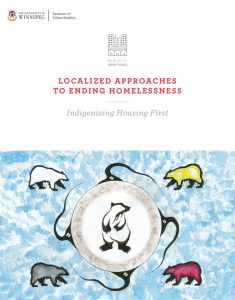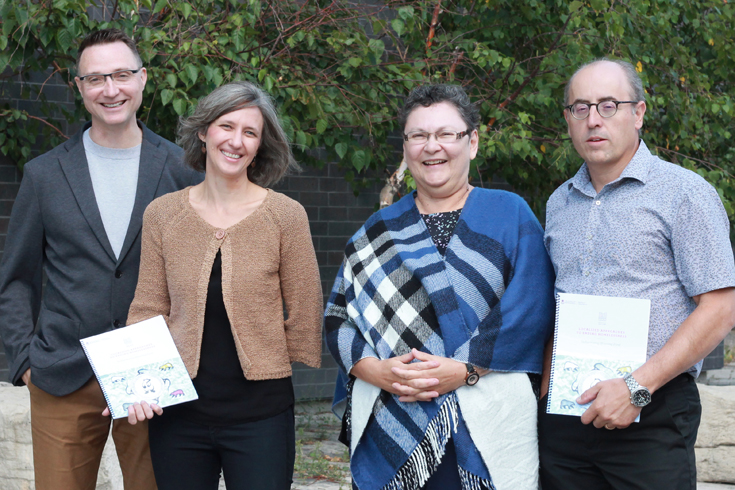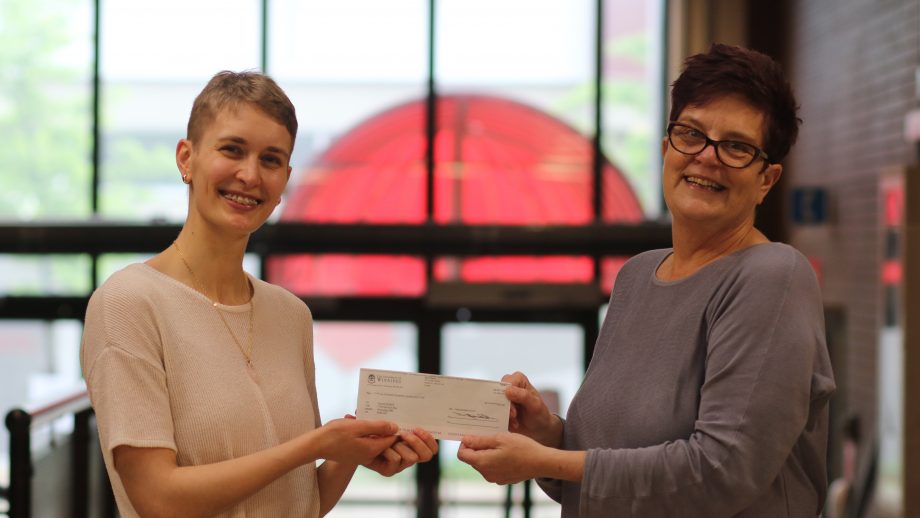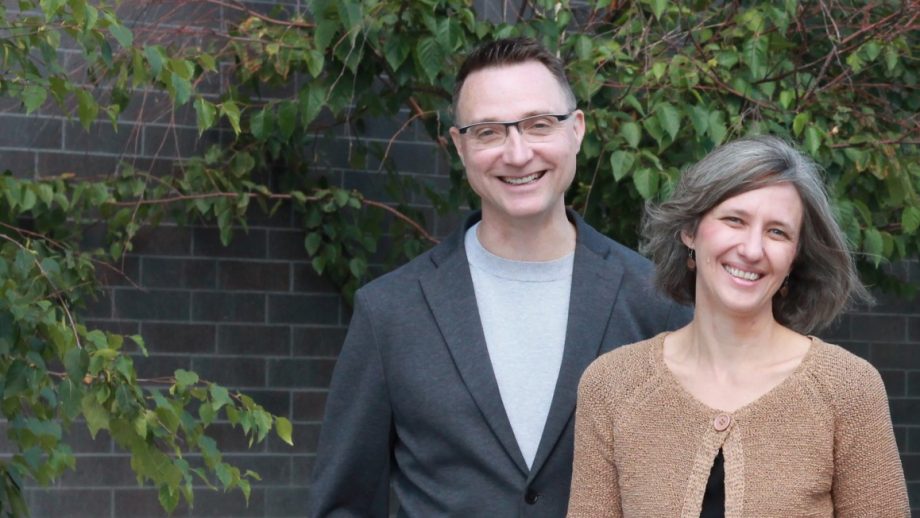 The University of Winnipeg’s Institute of Urban Studies (IUS) launched a report examining emergent practices in localizing the Housing First approach to ending homelessness.
The University of Winnipeg’s Institute of Urban Studies (IUS) launched a report examining emergent practices in localizing the Housing First approach to ending homelessness.
Indigenizing Housing First: Localized Approaches to Ending Homelessness is now in the hands of homelessness-serving organizations across Canada, the US, and as far afield as New Zealand.
Building on in-depth interviews with Housing First programs across western Canada, and discussions with international partners, the report develops guidelines for organizations to adapt the Housing First approach, specifically for Indigenous people experiencing homelessness. It includes reflections from communities that have adapted Housing First, and outlines the successes of implementing the model.
This project builds on a 10-year journey that began with the landmark At Home/Chez Soi (AHCS) project in Canada. This $110-million project fundamentally changed the way homelessness was both understood and addressed in Canada, and increasingly globally.
Dr. Jino Distasio was the Winnipeg lead on AHCS and part of the national team.
“Housing First, a decade ago, was not well understood nor used much beyond the five cities that took part in AHCS,” he said. “Now, closer to 70 cities and communities in Canada have adopted the AHCS model, along with an increasing number of international communities also using Housing First frameworks.”
The report is authored by Dr. Sarah Zell, senior research associate, IUS; Betty Edel, manager of prevention, End Homelessness Winnipeg; Scott McCullough, assistant director, IUS; and Dr. Jino Distasio, UWinnipeg vice-president, research, and innovation, and former director of the IUS.
The work began with a gathering at Thunderbird House in Winnipeg’s inner city in 2018, meeting with Elders and learning the importance of listening in order to approach their project in a way that reflected the needs of the community. This conversation provided crucial insight and direction, and helped shape their understanding of how important it is to go beyond simply providing a home to better understand the deeper histories and traumas of Indigenous peoples in Canada.
“We are grateful to the Elders who so willingly shared their wisdom with us over the course of this project,” said McCullough. “This report would not have been possible without their guidance.”
The first section of the report outlines work that began over a decade ago, when local organizations in Winnipeg (as well as Moncton, Montreal, Toronto, and Vancouver) were approached by the Mental Health Commission of Canada to participate in the At Home/Chez Soi (AHCS) research project. The Winnipeg AHCS team’s efforts helped to localize the program to align with the needs of Manitoba’s Indigenous population. This crucial knowledge is now being shared more widely.
It is estimated that 30,000 people across Canada struggle to find shelter each night, that 66% of the Winnipeg homeless population is Indigenous, and that among youth this rises to 74%. These numbers highlight the importance of incorporating Indigenous and local ways of knowing into any proposed solution.
Distasio, McCullough, Zell, and Edel hope that the report will provide insight, guidelines, and examples outlining the importance of localizing efforts to end homelessness, not just in Winnipeg but beyond, informing community and government organizations of how important it is to work together and learn from one another.
“It is important to honour local knowledge, empowering communities to shape their own unique approach while also reflecting on the broader contexts that inform efforts to end homelessness,” said Distasio. “We must work together to ensure that every Canadian has the ability to access the right set of supports that lead to long-term housing stability.”
The IUS is an independent research arm of UWinnipeg. Since 1969, it has been both an academic and an applied research centre, committed to examining urban development issues in a broad, non-partisan manner. The IUS examines inner city, environmental, Indigenous, and community development issues. In addition to its ongoing involvement in research, the IUS brings in visiting scholars, hosts workshops, seminars and conferences, and acts in partnership with other organizations in the community to effect positive change.





